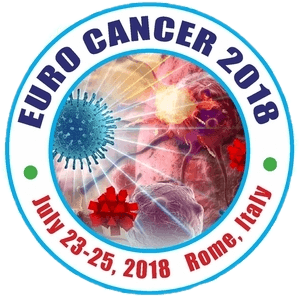
Christopher S Lange
SUNY Downstate Medical Center, Brooklyn, NY, USA
Title: Applying Koch’s postulates to test the cancer stem cell basis of cancer
Biography
Biography: Christopher S Lange
Abstract
We tested the cancer stem cell (CSC) hypothesis using the patented Hybrid Spheroid (HS) Assay (HSA) and by applying Koch’s postulates to test its validity. The HSA is an in vitro assay that enables one to take a viable sample of an individual patient’s tumor, make a single cell suspension, mix it in known proportions with human fibroblasts (AG1522) and dispense a known number of cells of the mixture into each well of ultra low attachment (ULA) 96-well plates to agglomerate into 1 HS/well, each containing an average of <1 CSC. The HS provides an analog of the CSC niche, enabling the CSC to proliferate (with some daughters differentiating into amplifying transit cells (ATCs)) and undergo 10–15 symmetric divisions before exhausting the nutrients. This satisfies the McCulloch and Till (spleen colony assay) requirements for a stem cell. Applying Koch’s postulates, we answer the following questions: Does the patient’s tumor contain cells with CSC properties?; Can we isolate and propagate these cells?; Can these cells induce the tumor in vivo?; Do these cells contain and express specific gene products that give them CSC properties?; If we disrupt these genes, do the cells lose their CSC properties?; If we eliminate the CSCs do we eliminate the cancer? The HSA was applied to tumor samples taken from individual endometrial adenocarcinoma patients and correctly predicted, based on CSC radioresistance, in patients who fail their standard-of-care treatments. It was therefore concluded that the CSC hypothesis is validated in the HSA.

